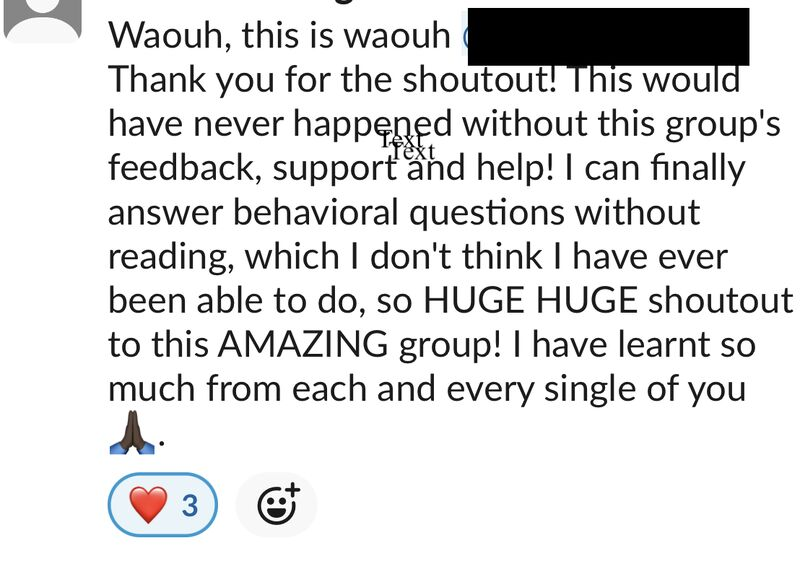Jan 27
/
Richa Bansal
How to Overcome Rejection & Land a $200K+ Leadership Role

Empty space, drag to resize
You got rejected after 5 rounds of interviews—and it’s not the company’s fault.
Yes, it’s unfair.
Yes, it’s frustrating.
Yes, it’s the unfortunate reality of today’s job market.
Companies are in a buyer’s market.
They’re taking their time, interviewing as many candidates as they want, and often ghosting without closure.
It sucks. But here’s the truth:
You can’t control the market.
What you can control is how you prepare for it.
That means…
- You can’t play the victim.
- You can’t overthink a rejection.
- You can’t afford to wing it.
Instead, you need to follow a proven process to improve your interviewing skills and win your next $200k+ interview.
Just like Aparna (name changed to protect privacy), who came to me after being rejected from multiple leadership interviews.
She said, “I know I’m qualified, but I keep failing my interviews — how do I actually seal the deal?”
➡ In just 8 weeks, she landed a Sr. Data Scientist role with her dream company, complete with a title raise and $35k salary increase!
Here are 3 strategies I teach my clients to become fearless and unstoppable in interviews:
1️⃣ Master strategic storytelling.
Companies don’t just want to hear what you did — they want to know how you made a significant business impact. I help my clients craft powerful stories using my signature SOARR Behavioral Interviewing Framework that showcase results and make them unforgettable.
2️⃣ Ask the questions that set you apart.
Your questions say as much about you as your answers. I show my clients how to ask strategic questions at each level of the recruiting process (recruiters, hiring managers, Directors and Sr. Leadership) that highlight their leadership skills, business acumen, and alignment with company goals.
3️⃣ Demonstrate confidence and executive presence.
Confidence and executive presence builds up through practice. We work through weekly mock interviews, personalized feedback, and mindset strategies so my clients show up prepared, calm, and unshakable under high pressure interviews.
Rejection is part of the process, but it doesn’t need to define your career.
It’s time to stop playing small.

Empty space, drag to resize
If you are an ambitious woman ready to land your next $200k+ leadership role and build a Fearless Career, apply for my signature career accelerator program, The Fearless Hire
Empty space, drag to resize
Whenever you are ready, here are 3 ways I can help:
1. THE FEARLESS HIRE: The only career accelerator for mid-senior women that are ready to land their next $150k - $400k job offer. Get the proven playbook, personalized coaching, and accountability you need to build your career on your own timeline, and become recession-proof.
2. WOMEN'S LEADERSHIP ACCELERATOR: The only women's leadership accelerator for mid-senior women across the Government of Canada. This 6-month leadership program will give you the confidence, skills and network you need to fast-track your growth to executive roles.
3. PARTNER WITH PINKCAREERS: Bring our award-winning keynotes, training and women's leadership programs to your organization to solidify your DEIB efforts.
3. PARTNER WITH PINKCAREERS: Bring our award-winning keynotes, training and women's leadership programs to your organization to solidify your DEIB efforts.
Your dream career begins here.
Every Saturday, get one actionable strategy to level up your confidence, career, and compensation in less than 5 minutes.
Write your awesome label here.
Sign up for weekly newsletter
Every Saturday, get one actionable strategy to level up your confidence, career, and compensation in less than 5 minutes.
FREE MASTERCLASS
Recession Proof Your Career: 5 Step Strategy to Land Your Next $150k - $400k Job Offer in Any Market
July 26, 2024 (Friday)
@ 12pm - 1:30pm CST
Thank you!
FREe video course
A Step-by-step Playbook to Fast-Track Your $200k Leadership Promotion
Awesome, your seat is saved!

